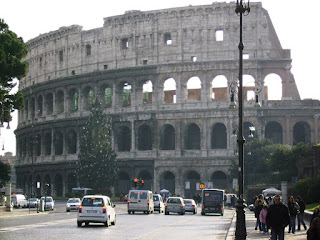Strathern attempts to show that things happening in Northern Europe during the 'Renaissance' (which he fails to define but I presume he means the period from about 1450 to 1600) were on a par with, or more important, things happening around the Mediterranean: "three of the most significant events of the entire Renaissance era would take place north of the Alps" (Prologue), those three being: the invention of movable-type printing, Protestantism, and a heliocentric universe.
To prove his thesis, he provides a number of mini-biographies of mostly well-known figures such as Gutenberg, Luther and Copernicus. Such a cherry-picked sample can't prove anything. Indeed, some of his selections (Paracelsus, for example) seem self-defeating. At one stage he suggests that “The entire Renaissance can be seen as bursting free from the constraint of systematic medieval thought.” But this is in his chapter on Montaigne and on the very next page he points out that Montaigne’s philosophy saw belief in God as a precondition and science as superficial, both attitudes which I would suspect Strathern would regard as typically mediaeval.
He also repeatedly makes the point that much of what he would characterise as Renaissance behaviours were accompanied by a background of strife, such as the religious wars catalysed by the Lutheran revolution: “Civil turmoil has frequently been accompanied by historic transformations.” (Ch 16) But other renaissances, such as that in twelfth century Europe which led to the first universities and the explosion in demotic literatures, depend on stability (in this case the reduction in threat from Viking raids from the north, Islamic invasion from the south, and Huns and Mongols from the east).
I also think he minimises the intra-Europe links. For example, amongst other contributors to the Northern Renaissance he lists John Cabot, who was born in Genoa, Pietro Torrigiano, from Florence, and Catherine de' Medici, another Florentine. Others such as Copernicus and Nicholas of Cusa were educated or worked in Italy.
On the other hand, if his intention is to show that developments in northern Europe were equally significant to those south of the Alps, I think he has succeeded.
The selection of biographies seemed eclectic. As I have said, some were so well known that it scarcely seemed worthwhile rehashing the details. But there are plenty of others about whom I knew nothing, such as Dietrich of Freiburg (although he scarcely fits the time frame), François Viète, and Etienne de La Boétie, or little, such as Nicholas of Cusa, the Fuggers, Mercator, and Vesalius. Unfortunately, for some of these relative unknowns, such as Rabelais (quoted as saying both ‘If you don't want to see a fool, then break your mirror.’ and ‘A child is not a vase to be filled but a fire to be lit.’), and Montaigne, I wished there had been more information. I definitely want to read them both. Strathern can't win! He's wide-ranging but this inevitably comes at the price of an element of superficiality.
The asterisks used to indicate a footnote were extraordinarily small and so very easy to miss. This was a shame since the footnotes sometimes provided fascinating information (see the Selected Quotes below). Otherwise, it is well written (although there are a couple of typos where a date in the 1500s has suddenly been put back 100 years), easy to read and enjoyable. Overall, it is an excellent introduction to the subject.
Selected quotes:
- “There appear to be certain elements common to all these early capitalistic exchanges: a thriving commercially minded bourgeoisie, an entrepreneurial ethos willing to take risks in order to achieve gain, and a form of loosely democratic city governance.” (Ch 2)
- “At the time, the word ‘idiot’ was a general term used to describe any layman or private individual who did not hold public office.” (Ch 3 fn)
- “As a polygon inscribed in a circle increases in number of sides ... so the mind approximates to truth but never coincides with it ... Thus knowledge is at best conjecture.” (Nicholas of Cusa, Ch 3)
- “The decay in China largely came about because of the separation between the intellectuals of the court (philosophers, poets, theologians) and the common people, whose mercantile practices were leading to ever-greater efficiencies, innovations and wealth.” (Ch 3)
- “The silver for these coins would come from the mines at Joachimsthaler in Bohemia, which provided silver for coins all over Germany and Austria. such currency became known as Joachimsthalers, which became shortened to thalers - the origin of the word ‘dollar’.” (Ch 8 fn)
- "Georgius Macropedius [was] regarded by many as the greatest Latin dramatist of the 16th century. Indeed his plays were so widely known that they would later influence the young William Shakespeare. Some of Macropedius’s works were adaptations of ancient Roman comedies by Terence and Plautus.” (Ch 13)
- “Not for him the easy dismissal of human actions or monstrous behaviour as simply ‘evil’, ‘barbarous’, ‘depraved’ or the like. It is by means of such words of disapproval that we distance ourselves from such acts. Montaigne insisted that we instead identify ourselves with such acts, and try to understand how we ourselves might have committed them.” (Ch 16)
- "Ivan the Terrible ... insisted that all his close advisers and courtiers drank with him each evening to ensure that they were too drunk to oppose him, and too hungover in the morning to plot against him.” (Ch 19 fn)
A wide-ranging and enjoyable history. April 2024; 324 pages

